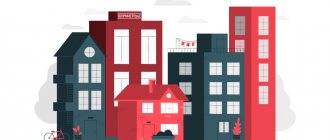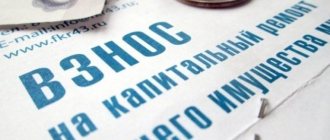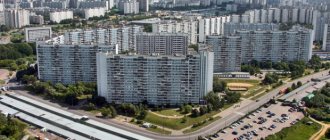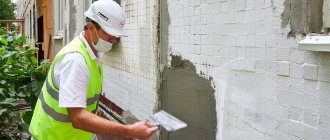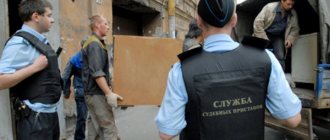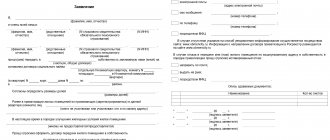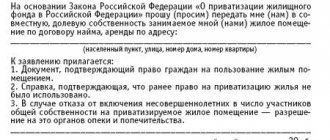After privatization of the first premises in the house, major repairs are paid for by all owners
Deputies of the State Duma of the Russian Federation did not agree that the former landlord is obliged to pay for major repairs of the house only if such repairs were required before the date of privatization of the first premises, and is not obliged to pay for the work if the house was included in the major repairs program after the first premises were privatized .
According to the plaintiffs, Part 1 of Art. 190.1 of the Housing Code of the Russian Federation leads to inequality between the owners of premises that were privatized before the house was included in the capital repair plan, and the owners who registered ownership rights after the apartment building was included in such a plan.
The deputies expressed disagreement with the reduction of the obligations of the former landlord in relation to citizens who privatized premises in a house that needed major repairs at the time they registered ownership of the apartment.
Registration procedure
Cash payments are not calculated automatically; to receive them, a person must contact the competent authority. The authority’s employees review the request and make a decision whether to grant the person’s request or refuse.
The procedure for processing compensation is determined by the norms of the Housing Code of the Russian Federation (Article 160)[2]. To get a positive response, a person is recommended to act as follows:
- Check whether the apartment is registered in the capital repair program with the service company or with the city Construction Department.
- Check for debt and, if any, pay it off in full. Since a persistent defaulter is deprived of the right to receive assistance.
- Request a receipt and pay the full amount. A receipt is usually provided to residents 8 months from the date of program approval.
- Collect the necessary application package and contact the Multifunctional Center (MFC) or the Social Security Administration.
- Get a response to your request. The application review period is 10 days.
The procedure for providing subsidies and discounts is regulated by Art. 159 Housing Code of the Russian Federation[3]. Basically, the requirements are satisfied, but in some cases, government officials may refuse the applicant. Usually they refuse in the following cases:
- the applicant submitted false or invalid documents;
- if the person provided only part of the applications;
- when a person has applied online or by mail and has not submitted applications;
- if the person who applied does not belong to the group of people who are entitled to payments;
- if the application was incorrectly completed.
If the reason for the rejection of the application was incorrect execution or failure to provide all certificates, then you can correct the shortcomings and apply again. If an unreasonable refusal was given, it can be appealed in court.
The transfer of ownership of property involves the transfer of the burden of its maintenance
The Constitutional Court of the Russian Federation, considering the application of the deputies of the State Duma of the Russian Federation, proceeded from the following postulates of the current legislation on property rights and the burden of its maintenance:
- The owner has the right, at his own discretion, to take any actions in relation to his property, if they do not contradict the law and other legal acts and do not violate the rights and legitimate interests of third parties.
- The owner bears the burden of maintaining the property he owns. The transfer of ownership of property from one person to another also implies the transfer to the new owner of the burden of its maintenance.
- When the owner alienates his property on the basis of an agreement, the requirements for the condition of such property are determined by law and the terms of the agreement. Defects and the degree of wear and tear of property do not in themselves constitute grounds for retaining the previous owner's obligation to maintain such property.
This also applies to relations that arise when transferring premises in state or municipal ownership to the ownership of citizens within the framework of the RSFSR Law of July 4, 1991 No. 1541 “On the Privatization of Housing Stock in the Russian Federation” as amended by the Federal Law of May 15, 2001 No. 54-FZ .
How to get a loan for major renovations in a house with a special account
148590
After privatization of the first premises in the house, common shared ownership arises
The Constitutional Court of the Russian Federation reminded the plaintiffs that a citizen, purchasing residential premises free of charge by agreement with the owner of the housing stock in accordance with Law No. 1541, understands and confirms his readiness to independently bear the costs of maintaining the purchased object, taking into account its technical condition.
At the same time, the former landlord of residential premises in an apartment building retains the obligation to carry out major repairs of such a house at the expense of the budget in accordance with Part 1 of Art. 190.1 of the Housing Code of the Russian Federation is an exception to the general rule that the owner bears the burden of maintaining his property.
After the privatization of the first premises in a house, such a house loses its status as an exclusively municipal or state housing stock. In relation to the common property of such an apartment building, common shared ownership arises, the participants of which are the corresponding public legal entity and the citizen who privatized the residential premises (clause 4 of article 244, clause 1 of article 290 of the Civil Code of the Russian Federation, part 1 of article 36 of the Housing Code of the Russian Federation , part 2 article 3, part 2 article 24 No. 1541).
After the privatization of the first residential premises in the house, the former landlord ceases to solely bear the burden of maintaining the apartment building: each of the owners is obliged to participate in such expenses in proportion to the size of the area of the residential premises belonging to him.
Who and how issues receipts for paying contributions for major repairs?
9459712
Privileges
In accordance with Part 2 of Article 154 of the Housing Code of the Russian Federation (hereinafter referred to as the Housing Code of the Russian Federation), for the owner of premises in an apartment building, the structure of payment for residential premises and utilities includes a contribution for major repairs of common property in an apartment building. By virtue of paragraph 1 of Article 1 of the Law of St. Petersburg No. 228-45 “On the form of providing social support for the payment of housing and utilities in St. Petersburg” dated May 20, 2009. (hereinafter referred to as the Law of St. Petersburg No. 228-45), the form of providing social support measures to the categories of citizens specified in paragraph 2 of this article for paying for housing and utilities in St. Petersburg is a cash payment. A cash payment is provided to a citizen if he has no debt to pay for housing and utilities or if the citizen concludes and/or fulfills an agreement to repay it (clause 1 of Article 4 of the Law of St. Petersburg No. 228-45). In St. Petersburg from 01.11.2014. Citizens receiving social support measures for paying for housing and utilities in the form of cash payments are already compensated for the costs of paying a contribution for major repairs in the amount established in accordance with the legislation of St. Petersburg. Preferential categories of citizens include owners of residential premises: disabled people of groups I and II, disabled children and citizens with disabled children, etc. On the issue of providing additional benefits for the payment of contributions for major repairs of common property in an apartment building, we inform you that the State Duma of the Russian Federation adopted Federal Law No. 399-FZ “On Amendments to Article 169 of the Housing Code of the Russian Federation and Article 17 of the Federal Law “On Social protection of disabled people in the Russian Federation" dated December 29, 2015. In accordance with this law, Article 169 of the Housing Code of the Russian Federation is supplemented with part 2.1 with the following content: “2.1. The law of a constituent entity of the Russian Federation may provide for the provision of compensation for the costs of paying a contribution for major repairs, calculated based on the minimum amount of the contribution for major repairs per one square meter of total living space per month, established by a regulatory legal act of a constituent entity of the Russian Federation, and the size of the regional standard of regulatory area of residential premises used to calculate subsidies for single non-working owners of residential premises living alone who have reached the age of 70 years - in the amount of 50%, 80 years - in the amount of 100%, as well as living as part of a family consisting only of non-working citizens living together retirement age, owners of residential premises who have reached the age of 70 years - in the amount of 50%, 80 years - in the amount of 100%.” The procedure for providing benefits is determined by the legislation of St. Petersburg. In St. Petersburg on June 30, 2016. The resolution of the Government of St. Petersburg “On introducing amendments to the resolution of the Government of St. Petersburg dated May 20, 2016” was adopted. No. 385." In accordance with paragraph 5 of the above resolution, owners of residential premises who have the right to receive monetary compensation as of July 1, 2016, will be provided with monetary compensation from July 1, 2016. subject to submitting an application for monetary compensation and the documents necessary for its provision to the administration of the district of St. Petersburg at the place of residence in accordance with the resolution no later than December 31, 2016. And also: owners of residential premises who have the right to receive monetary compensation as of July 1, 2016, who submitted an application for monetary compensation and the documents necessary for its provision to the administration of the district of St. Petersburg at their place of residence after December 31, 2016. , monetary compensation is provided in accordance with the resolution (clause 2.2 - monetary compensation is provided to the owner of the residential premises from the month of submission of the application and documents). By order of the Committee on Social Policy of St. Petersburg dated July 8, 2016. No. 196-r The St. Petersburg state government institution "City Information and Settlement Center" is designated as an institution that ensures the entry of information about single living non-working owners of residential premises who have reached the age of seventy years or older, as well as those living in a family consisting only of people living together non-working citizens of retirement age, owners of residential premises who have reached the age of seventy years and older - recipients of an additional measure of social support in the form of monetary compensation for the cost of paying a contribution for major repairs of common property in an apartment building to the automated information system "Electronic Social Register of the Population of St. Petersburg ", in order to create a unified accounting and transfer to the owners of residential premises monetary compensation for the costs of paying the contribution for major repairs. The application can be submitted by the owner of the residential premises to the Multifunctional Center for the provision of state and municipal services of the area in which the apartment building where the residential premises is located is located. List of necessary documents to receive compensation: - application of the established form; — identification documents; — documents containing information about the owner’s place of residence; — work record of the owner and family members living with him; — documents confirming ownership; — receipt of the accrued contribution for major repairs. Thus, the calculation of contributions for the overhaul of common property in an apartment building by the non-profit organization “Fund - regional operator of overhaul of common property in apartment buildings” (hereinafter referred to as the regional operator) is carried out in full. Payment of accruals is made by the owners of premises in apartment buildings in full. Social support measures and additional measures of social support for paying for housing and utilities in kind (in the form of a reduction in the amount of payment for housing and utilities) and in the form of cash payments are provided to the following categories of citizens: - orphans and children left without parental care; - Heroes of the Soviet Union, Russian Federation, full holders of the Order of Glory; - widow (widower) and parents of the Hero of the Soviet Union, Russian Federation, full holder of the Order of Glory; - Heroes of Socialist Labor, full holders of the Order of Labor Glory. For additional clarification on the issue of providing benefits for the payment of contributions for major repairs of common property in an apartment building, you need to contact the social protection department of the Administration of the district of St. Petersburg in which your apartment building is located. We draw your attention to the fact that in case of failure to pay the debt voluntarily, the regional operator will demand forced payment through the court. At the same time, in addition to collecting the main debt for payment of contributions for capital repairs and accrued penalties for late payment of contributions for capital repairs, in accordance with Part 1 of Article 98 of the Civil Procedure Code of the Russian Federation, all legal expenses incurred in the case are recovered from the losing party, including including payment of state fees and other costs of the regional operator associated with the consideration of the case.
The former landlord must not maintain someone else's property
From the above legislative norms, the Constitutional Court of the Russian Federation made several conclusions:
- The fulfillment by the former landlord of the obligation to carry out major repairs in a house that needed it on the date of privatization of the first residential premises meets the interests of all owners and is consistent with the constitutional principle of equality (Article 19 of the Constitution of the Russian Federation).
- Imposing on the former landlord the responsibility for carrying out major repairs of an apartment building, the need for which will arise at the time of privatization of the second and subsequent premises, will entail unjust enrichment of the owners of the premises, during the privatization of which there was no need for major repairs of the house.
- Norms part 1 art. 190.1 of the Housing Code of the Russian Federation should not be interpreted as the obligation of the former landlord to carry out major repairs in the house at his own expense until the privatization of all premises is completed. This would violate the constitutional principles of equality, fairness and proportionality: in fact, it would mean imposing on the former lessor the obligation to maintain, among other things, other people's property.
Therefore, Part 1 of Art. 190.1 of the Housing Code of the Russian Federation corresponds to the Constitution of the Russian Federation, and the state or municipal authority in whose ownership the housing stock was located is obliged to carry out major repairs of the house at the expense of budgetary funds only if the house needed such repairs and was included in the capital repair plan before the privatization of the first living space in it.
In other cases, the owners of privatized premises are obliged, on an equal basis with others, to pay contributions for the overhaul of common property in the house in proportion to the area of the premises they own.
Who is eligible for government assistance?
Preferences in paying for housing and communal services are provided to citizens who have special merits to the country, pensioners, as well as persons who are unable to pay for housing and communal services on their own (disabled, incapacitated, low-income people).
Federal Law-5 “On Veterans”[1] guarantees the receipt of social assistance by the following categories of citizens:
- Participants in military conflicts in Chechnya, Afghanistan, Syria and other countries.
- WWII veterans.
- To the families of military personnel killed in battle.
- Persons who carried out combat missions.
- Residents of Russia and the USSR who carried out military missions in other countries.
The law also applies to labor veterans in war zones and people who worked on military bases.
According to federal legislation, the specified categories of people are charged 50% of the amount to be paid for major repairs. The amount of the repair contribution depends on the cost of the occupied total area of residential premises, regardless of the type of housing stock.
